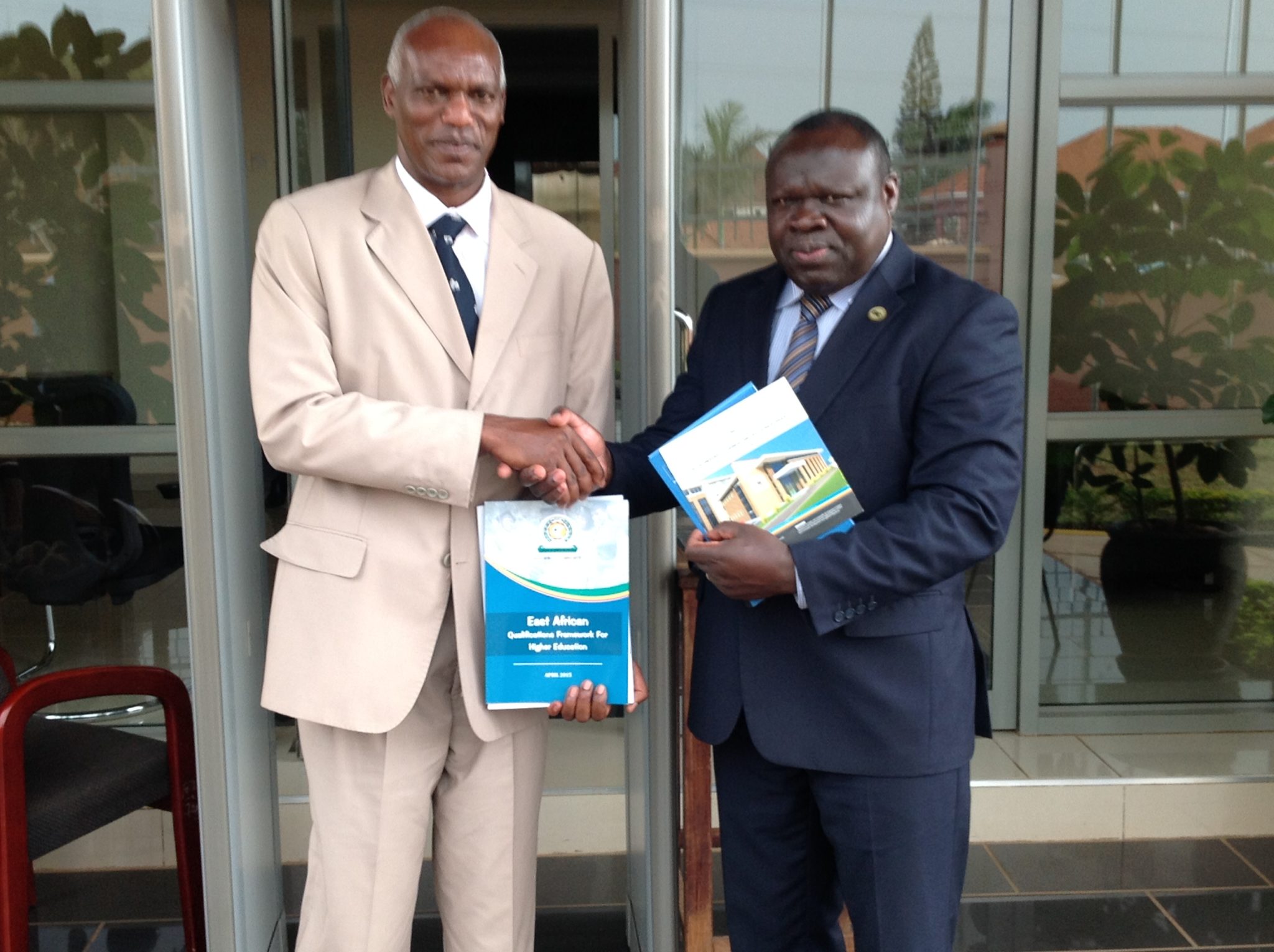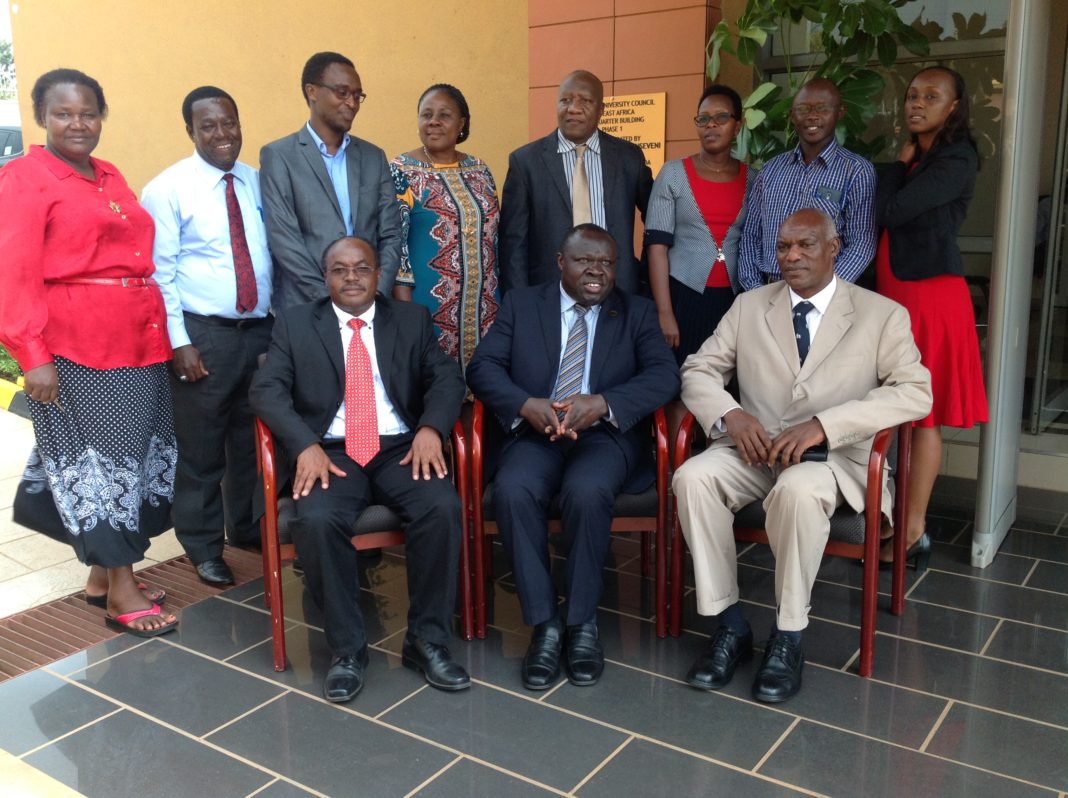The Deputy Secretary General of the East African Community in charge of Productive and Social Sectors, Christophe Bazivamo, has concluded a working visit to two EAC Institutions, the Inter-University Council for East Africa (IUCEA) and Lake Victoria Fisheries Organization (LVFO). The Deputy Secretary General also toured the Uganda Industrial Research Institute (UIRI).
As part of the Deputy Secretary General’s familiarization tour of the EAC Institutions based in Uganda, on the sidelines of the ongoing 5th Session of the East African Legislative Assembly (EALA) sitting in Kampala, Mr Bazivamo met the management and staff of LVFO, led by the Executive Secretary, Mr. Godfrey Mono.
Mr. Mono briefed the EAC official on the milestones LVFO has undertaken as the specialized institution of the community with the mandate to manage fisheries and aquaculture for food security and wealth creation within the region.
Hon. Bazivamo commended the staff for the impressive institutional achievements despite the challenges the institution was facing.
In winding up his visit to LVFO, Hon. Bazivamo was taken on a tour of Kamik Fish Factory (Unifood) in Gomba village in Central Division in Jinja Municipality, which was gutted and burnt down by fire on January 9, 2017.
As a specialized and autonomous institution of the EAC, the programmes and activities of the LVFO are in line with the vision and strategy framework for the management of the Lake Victoria Basin developed by the EAC in 2003, and the Protocol for Sustainable Development of Lake Victoria. The operations of the LVFO are also guided by the Administrative Principles embedded in the EAC Treaty especially Article 7 which spells out the principle of subsidiarity whereby decisions are proposed at national level, harmonized and agreed upon at regional level and implemented at national level.

Meanwhile, at the Inter-University Council for East Africa (IUCEA), Professor Alexandre Lyambabaje, informed the Deputy Secretary General that the Institution’s main mission is to promote strategic and sustainable development of higher education systems and research for supporting East Africa’s socio-economic development and regional integration.
Prof. Lyambabaje noted that the demand for higher education in East Africa has been growing tremendously since the last decade with the number of public and private university institutions increasing exponentially. For example, the number of IUCEA member university institutions has grown from 33 in 2000 to 115 at present (2016/7). At the same time, IUCEA had experienced considerable institutional growth within the same period, which has led to expansion in activities.
The Executive Secretary disclosed that IUCEA was continuously setting policy strategies and developing appropriate interventions so as to ensure that it (IUCEA) remains relevant and effective in serving the Community.
Mr Bazivamo commended Prof. Lyambabaje and his team at IUCEA for developing a resource mobilization strategy to mitigate financial challenges being faced by the EAC Institution.
The Deputy Secretary General also visited the Uganda Industrial Research Institute (UIRI), and held discussions with the management led by the Executive Director, Prof. Charles Kwesiga. UIRI, among others, engages in applied research and other activities (such as value addition) to steer rapid industrialization in Uganda. The East African Community has recognized the Institute as a Regional Center of Excellence in Research and Development (R&D).
UIRI traces its roots to the East African Federation of the 1970, as a precursor of the then East African Research Services Organization (EARSO), which was headquartered in Nairobi and served as a regional Research and Development institution for Kenya, Tanzania and Uganda. Upon collapse of the East African Federation, the EARSO was disbanded in 1977, and later transformed into the Kenya Industrial Research and Development Institute. Tanzania followed with establishment of the Tanzania Industrial Research and Development Organization. It was not until 2002 that Uganda fully established and legally sanctioned UIRI.








